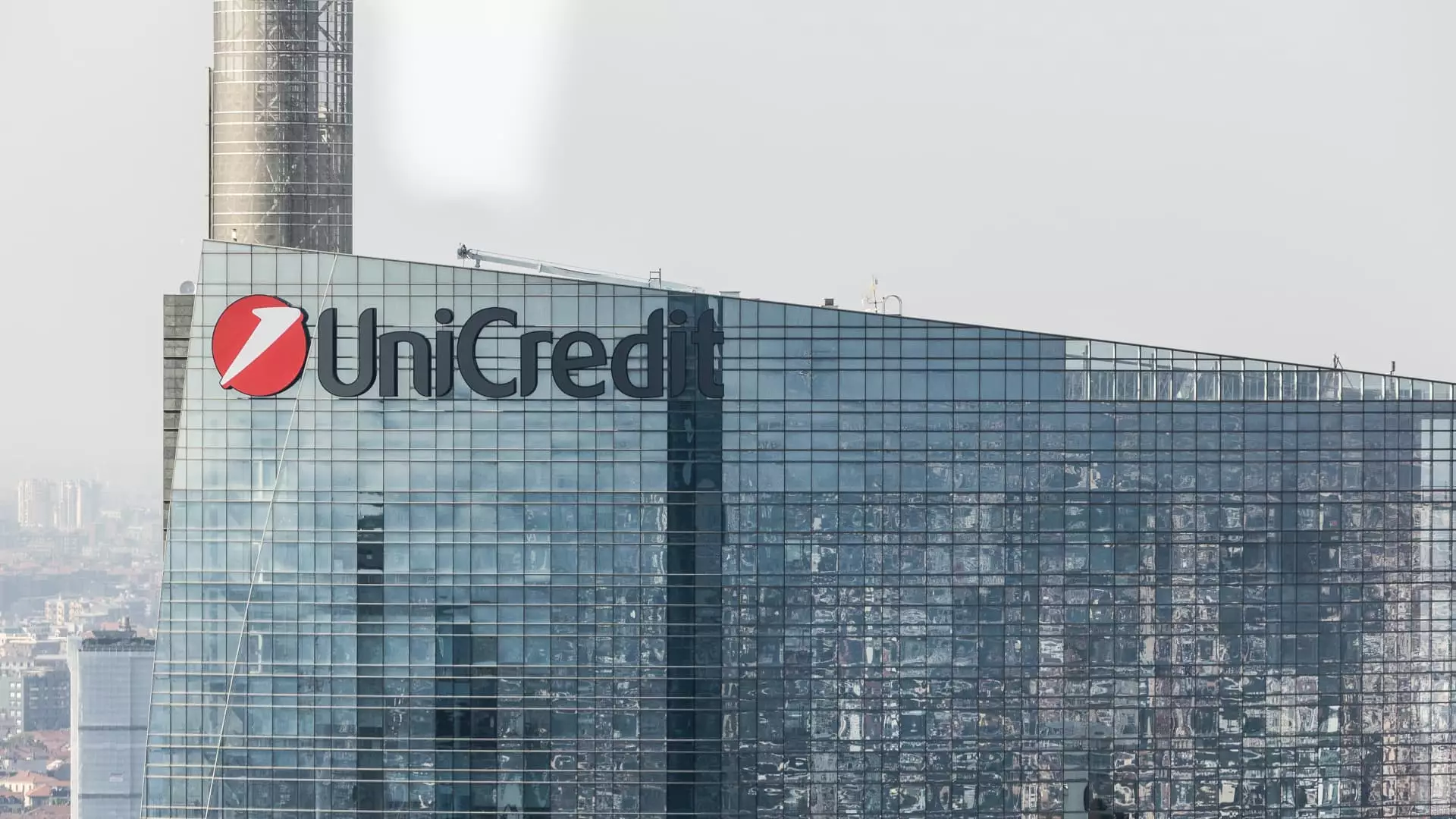In a significant twist in European financial markets, Italy’s second-largest banking institution, UniCredit, has announced an enhancement of its stake in Germany’s Commerzbank from 21% to 28%. This adjustment is primarily enacted through the use of derivatives, signifying a more aggressive posture in the competition for influence within the German banking sector. UniCredit’s ownership structure now comprises a direct stake of 9.5% alongside a derivative stake approximating 18.5%. The strategic implications of this move cannot be underestimated, as they may pave the way towards a more comprehensive acquisition of the German lender.
To further its ambitions, UniCredit has sought approval from the European Central Bank (ECB) to elevate its shareholding up to 29.9%. This request underscores CEO Andrea Orcel’s vision not just for a singular investment but as part of a broader narrative that includes pursuing a potential acquisition of another key Italian bank, Banco BPM. By publicly articulating its plans, UniCredit emphasizes its belief in the untapped value within Commerzbank. Such movements reflect a strategic alignment with Germany’s economic growth narrative, validating the critical role a robust banking sector plays in fostering regional development.
Despite increasing its stake, UniCredit emphasizes that its current interest in Commerzbank is solely an investment. This caution indicates that, while Orcel envisions the potential for a deeper relationship with Commerzbank, any concrete steps toward a full acquisition still hinge on multifaceted negotiations and regulatory approvals. It remains to be seen how the German government’s stance may evolve, particularly given its historical 12% stake in Commerzbank and recent governmental instabilities. Analysts are divided on Orcel’s next steps, suggesting that he might consider altering his offer for Banco BPM to make it more attractive.
The Political Landscape and Market Reactions
The broader political landscape in Germany presents additional challenges for any prospective merger. The recent turbulence in the German ruling coalition raises questions about the government’s willingness to endorse significant banking consolidations. Commerzbank has publicly acknowledged UniCredit’s announcement yet remains non-committal, stating that the bank is currently revising its strategy, which it plans to unveil on February 13. Meanwhile, market response has been positive, with shares of UniCredit and Commerzbank experiencing modest increases, reflecting investor optimism regarding potential synergies and future growth avenues.
A merger between UniCredit and Commerzbank might generate substantial synergies that could enhance their positions in capital markets, payment processing, and trade finance. Analysts argue that such a consolidation could reshape the competitive landscape, altering market dynamics across Europe. However, as both entities proceed cautiously, the success of this maneuver will depend on external factors including regulators’ responses and market conditions.
UniCredit’s calculated steps to bolster its stake in Commerzbank signal a complex interplay of ambition, regulatory navigation, and political dynamics. As stakeholders watch these developments with keen interest, the trajectory of their strategic intentions will be pivotal in determining the future course of European banking.

Leave a Reply